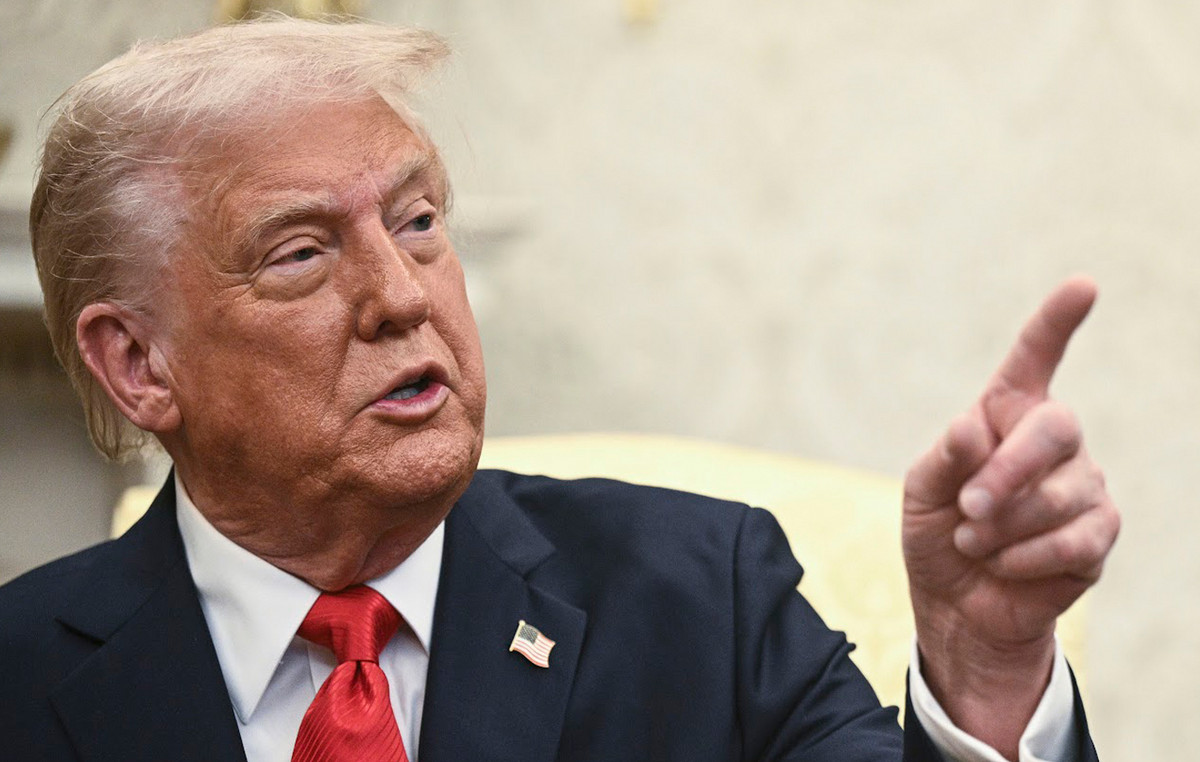Economy Minister Paulo Guedes once again defended a leaner version of the tax reform, with a focus on changes in the taxation of the “super-rich” and companies, during an Investment Monitor launch event on Monday ( 9).
The minister commented on Bill 2337/21, which brings changes in the Income Tax for individuals, companies and financial investments. Guedes’ proposal would then focus on taxing dividends for individuals and reducing corporate taxes to be approved more quickly.
The project is currently awaiting approval by the Federal Senate and is considered the second phase of the tax reform, something broader, proposed by the Federal Government.
“We can do it a leaner version, taxing the richest and reducing corporate taxes . This is what Brazil needs to receive investments from abroad”, he said, recalling that the text of the Income Tax reform suggested by the Executive was approved in the Chamber, but stalled in the Senate.
Understand:
Profits and dividends
On profits and dividends, the proposal changes the taxation of both for individuals, who are currently exempt, to 15% at source.
Microenterprises and small businesses would be exempt for profits and dividends of up to R$20,000 per month. This limit will be considered for the set of partners who are linked, that is, spouses, partners or relatives, consanguineous or similar, up to the third degree.
Also according to the text, the individual who receives, in the month, profits from more than one micro or small company that exceeds the limit of R$ 20 thousand must pay the tax based on the rate of 20% on the surplus value still not taxed.
According to data from the IBGE’s Pnad Contínua, the average monthly income of those among the richest 5% in Brazil is R$10,313.00. The cut to be in the 1%, that is, with an average income higher than that of 99% of the adult Brazilian population, is R$ 28,659.00.
Also at this point in the project, in the case of a beneficiary domiciled abroad, the IRRF rate levied on distributed profits or dividends will be 20%. In the case of remittances destined to beneficiaries domiciled in a tax-favored country or subject to a privileged tax regime, the applicable rate is 30%.
For the chief economist of Ativa Investimentos, Étore Sanchez, Guedes uses a “figure of speech” when he says that these are the points that “Brazil lacks to receive investments from abroad”.
According to the economist, “taxing dividends may not only affect the super-rich, even more so with the large number of CPF’s that currently exist on the stock market”. The economist points out that many of the investors present on the stock exchange are from the middle class.
Legal entities
The proposal deals with the Income Tax for legal entities. The text says that the base rate of the Income Tax for Legal Entities (IRPJ) will be reduced from the current 15% to 12.5%, in 2022, and 10%, from 2023. The additional 10% for profits above R$ 20 thousand per month remains.
In addition to the base rate of 15%, the calculation currently also takes into account an additional 10% on IRPJ and an additional 9% of the so-called Social Contribution on Net Income (CSLL), totaling 34%.
During the event, Guedes said that the goal is to reduce taxes from 34% to 26%, but did not detail how. “In the first move, if revenue continues to rise, we will continue to reduce taxes,” he said.
FGV-RJ Law professor Bianca Xavier links the two points of the reform and Guedes’ statements. According to her, it is desirable and possible to tax dividends, provided that the reduction in the rate for legal entities “is proportional to what is taxed”.
The teacher explains that, if the opposite occurs, there may be a disincentive for everyone who invests. “With a much smaller gain, people stop investing. I cannot tax dividends at the same levels in the legal entity, it needs to be reduced in the legal entity
When the text was presented, the then Undersecretary for Taxation and Litigation, Sandro de Vargas Serpa, followed the line defended by Guedes.
“The main idea is to reduce corporate taxation to increase competitiveness and job creation. With the reduction of the rate, Brazil approaches the average of taxation of OECD countries”.
Economist and professor at FGV Gesner Oliveira agrees that the “calibration” of taxation on legal entities is important. The economist complements by saying that a reform of a “structural nature is needed, which should not be done hastily to take advantage of the elections. I believe that a one-off measure would not be recommended.”
Gesner also recalls that legal entities are “those who employ and who invest”, with a reduction in the rate “in theory, this stimulus increases”. However, the professor reiterates that it is not possible to “move just one piece”, within the Brazilian tax context.
Agenda in the Chamber
This Tuesday (10), the president of the Chamber of Deputies, Arthur Lira (PP-AL), said that administrative and tax reforms “will remain on the agenda of the day”, but cited difficulties in advancing discussions due to the election year. .
“We have to deliver the administrative reform, which is ready in the commission and needs the support of all Brazilian businessmen and more explicit from the government, because a country like ours is restricted, because we don’t give up the spending ceiling, but we need a spending floor,” he said.
He cited a government “reflux” on the issue due to the election year, and an increase in the opposition, which hinders the progress of the reform. Regarding the tax, Lira said that it is necessary to finish it, since only a few points were voted on.
Source: CNN Brasil
I am Sophia william, author of World Stock Market. I have a degree in journalism from the University of Missouri and I have worked as a reporter for several news websites. I have a passion for writing and informing people about the latest news and events happening in the world. I strive to be accurate and unbiased in my reporting, and I hope to provide readers with valuable information that they can use to make informed decisions.







